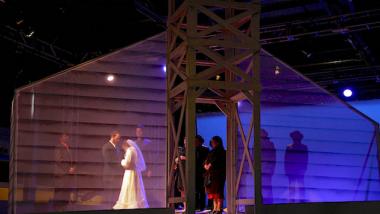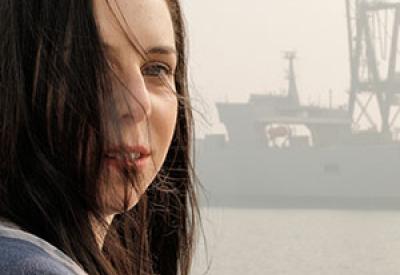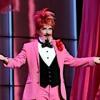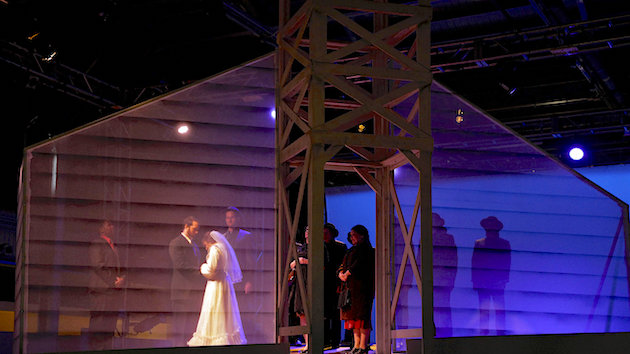
A large, white clapboard house dominates the set of West Edge Opera’s Breaking the Waves at the Bridge Yard in Oakland. Like the buttoned-down Scots Calvinist community where the action takes place, the facade is unadorned and formidable.
Inexorably, in this musically and dramatically penetrating transformation of the 1996 Lars von Trier film about a woman driven to psychosexual extremes after her husband is severely injured in an oil rig accident, the secrets of what goes on behind pure white walls are revealed with a white-hot, blood-red intensity.
The house, in a starkly effective design by Evan Streshinsky and production director Mark Streshinsky, turns translucent under Pamila Gray’s lighting. The first membrane yields and gives way. The remarkable journey inward begins, as it often does in stories bound for tragedy, with love and marriage.
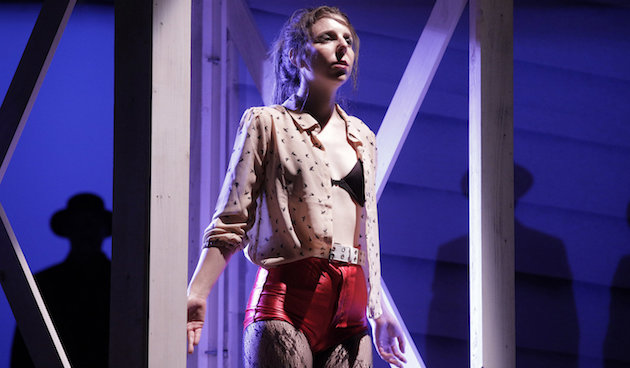
The opera’s heroine, Bess McNeill, thoroughly embodied in voice and soul by soprano Sara LeMesh, is at once giddy and grateful for bringing Jan Nyman (the compelling baritone Wes Mason) into her life. Bess dons a wedding dress. She and Jan make exultant love on a bed in shame-free plain sight. Both of them sing of their delight in composer Missy Mazzoli’s ascendant, percolating vocal lines. The orchestra celebrates along with them, with shimmering strings, sustaining pedal points, and ecstatic percussion.
Bess stands in the doorway of the house and thanks God for giving her the gift of Jan. The townsfolk affirm her spiritual side, albeit in a decidedly more sober cadence. The all-male chorus that looms throughout in black garb and stiff-brimmed hats (costumes by Christine Crook), deliver bleakly beautiful hymns of devotion and admonition. Mazzoli’s dense, ambivalent choral harmonies, threaded together with her restlessly febrile orchestrations, are one of many unfolding marvels in this 2016 score. Conductor Jonathan Khuner led a performance of keen-edged, expressive amplitude.
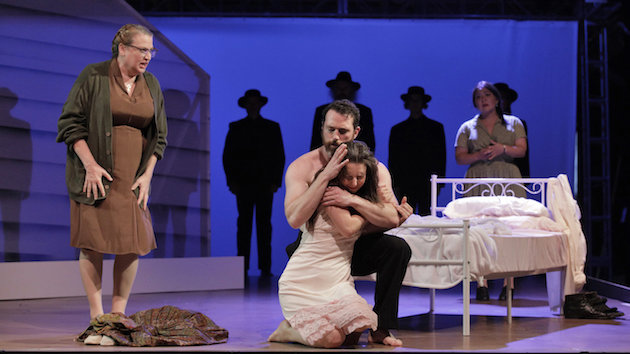
All honeymoons come to end. To the sound of a clangorous metallic beat, Jan must return to his job on the offshore rig. Bess’s heartache is understandable, sympathetic. But as Royce Vavrek’s libretto gradually and artfully discloses, there’s more to Bess’s state of mind than lovesick loneliness. The careful attentions of her mother (the rueful soprano Kristin Clayton, touched with a Scottish lilt) and sister-in-law (mezzo Kindra Scharich, all tender empathy) recalibrate and deepen the narrative. Bess, it seems, has emotional and psychological problems that predate her meeting and falling in love with Jan.
Like von Trier’s controversial film, the operatic version of Breaking the Waves is frank about its subject matter. There’s sexual violence, some nudity and euphemism-free dialogue. But there’s nothing sensational or exploitive in any of it. Bess and Jan’s phone-sex scene, for example, is so realistically done and musically terse that the listener feels both the power and limitations of fantasy in sex and human relations more broadly.
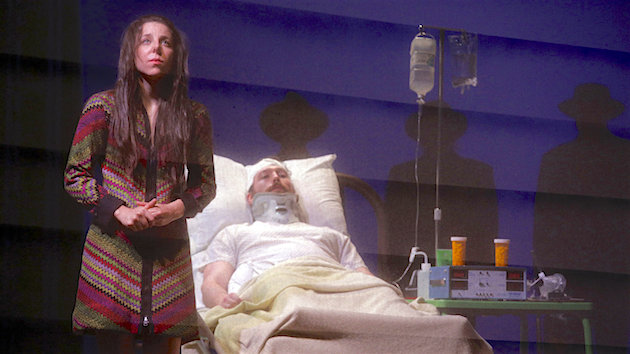
Fantasy and reality combust in the opera’s vivid second act. Apparently paralyzed and laid up in bed, Jan asks Bess to have sex with other men so she can gratify him with her descriptions of the encounters. It happens in a spasmodic way, as Bess resists at first, bumbles through a few attempts and visits a doctor (tenor Alex Boyer, light of voice but a persuasive actor). Eventually, driven both by her love for Jan — her inherent “goodness” — and some internal self-destructive force, Bess is drawn into the vortex.
Breaking the Waves challenges an audience to open their hearts and minds to highly charged material. But it also rewards in multiple ways. In its psychological and emotional acuity, its portrait of social and religious structures and investigations of good and evil, the piece ranges wide and deep.
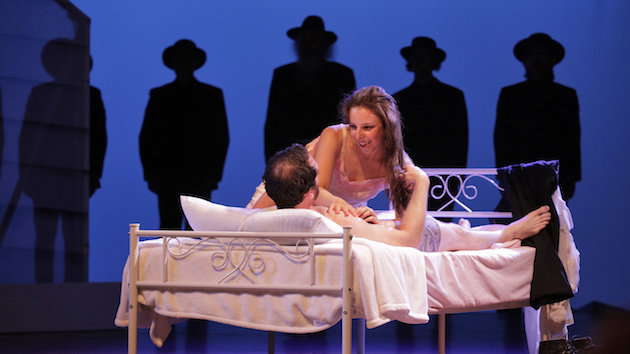
All of it is animated by the remarkable, shifting contours of the music. The orchestral writing is full of raw orchestral color, as if the characters’ nerve endings themselves could be heard. A solo violin keens and shivers. A harp string plunks on obsessively. A bass drum booms and goes silent. A clarinet scrawls some out half-formed melody. The vocal lines, from Bess’s amorous wonder to her mother’s warily centered lines to those haunting choral hymns, both capture and enlarge the story.
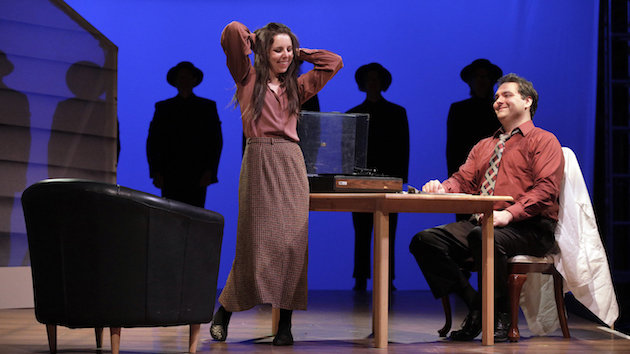
The performances shine, led by LeMesh’s extraordinary realization of Bess. Over two hours and 45 minutes, most of which she spends onstage, the soprano creates a character of fearless musical and dramatic complexity. Her Bess is a woman of passion and self-doubt, flaws, and aspirations. Her singing soars and swoons. She speaks some of her dialogue, hears voices, and answers them back. She is clear-eyed and confused and lasered-in on the truth of every moment. Streshinsky’s production is admirable in its broad design and fine-grained detail, notwithstanding some blurry blocking. The action unrolls in a fluid and decisive sequence of scenes that feel both specifically rooted in place and time and operatically timeless.
Meanwhile, there’s no time for an audience to dawdle. Two Breaking the Waves performances remain, on August 16 and 18.

